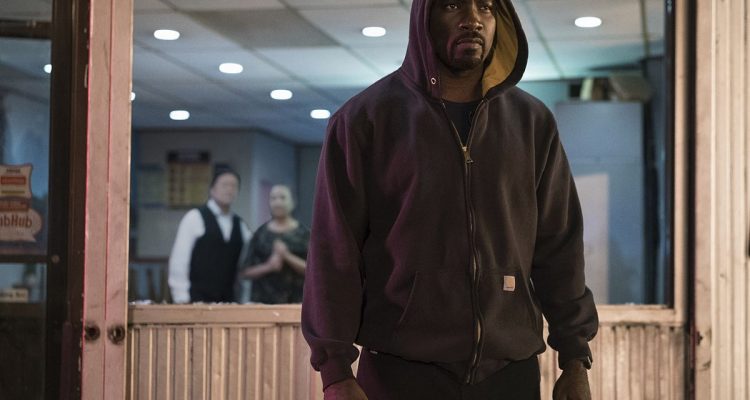“Marvel’s Luke Cage,” the third of Netflix’s shows tied (increasingly loosely) to the Marvel Cinematic Universe after “Daredevil” and “Jessica Jones,” arrived over the weekend on the streaming service. Based on the ultra-strong, virtually invulnerable character who debuted back in 1972 and became Marvel’s first title led by an African-American character, appropriately enough the show is the first property in the Marvel Cinematic Universe, after 13 movies and four TV series, to be led by a black actor, with Mike Colter playing Luke.
READ MORE: ‘Luke Cage’ Goes To War New Trailer For Marvel’s Netflix Series
As a result, it’s arguably been more hotly anticipated than any other Marvel show, to the extent that Netflix went down not once, but twice over the weekend. Having absorbed the whole thing over the weekend (as we’re sure many of you have done — and if not, you might want to check back once you have, as we will be going into spoilers), we’ve now got a measure of the show as a whole, and we’re sad to report that for the most part, and to mix up a phrase from a rival superhero story, Luke might be the hero that we need right now, but not the one we deserve.
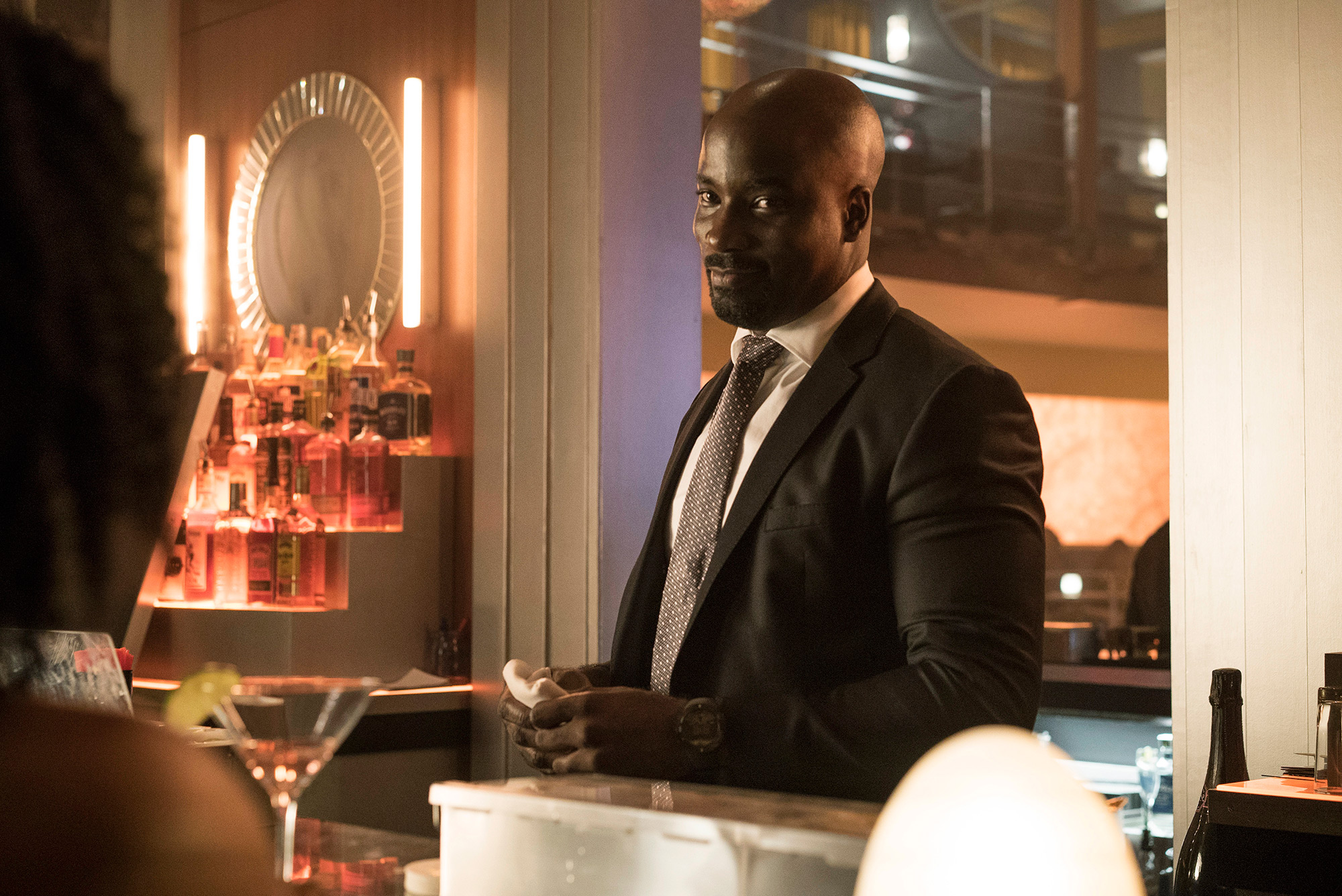 **SPOILERS BELOW**
**SPOILERS BELOW**
Reaction seems to have mostly been warm to the series, and there’s enough here that’s good that we can see why. Creator Cheo Hodari Coker certainly doesn’t shy away from Luke being Marvel’s first headlining African-American hero, and the show is at its best when its at its blackest. There are loose homages or references to classic 70s-era Blaxploitation (most memorably with the excellent score by Adrian Younge and A Tribe Called Quest’s Ali Shaheed Muhammad), great African-American crime writers like Walter Mosley, and important political figures from Crispus Attucks onwards.
Occasionally, a reference to A$AP Rocky or Kendrick Lamar will be shoehorned in a way that feels very hey-there-fellow-kids, but otherwise, this isn’t a cosmetic change — a white superhero in black skin — it’s a character and a show where his blackness is intrinsically part of it. And while that might put some less, uh, open-minded viewers off (like the New York Times’ critic), it’s easily the show’s greatest strength, giving it a specificity that its Netflix stablemates lack. It’s kind of a thrill to see a show as across-the-board diverse as this is.
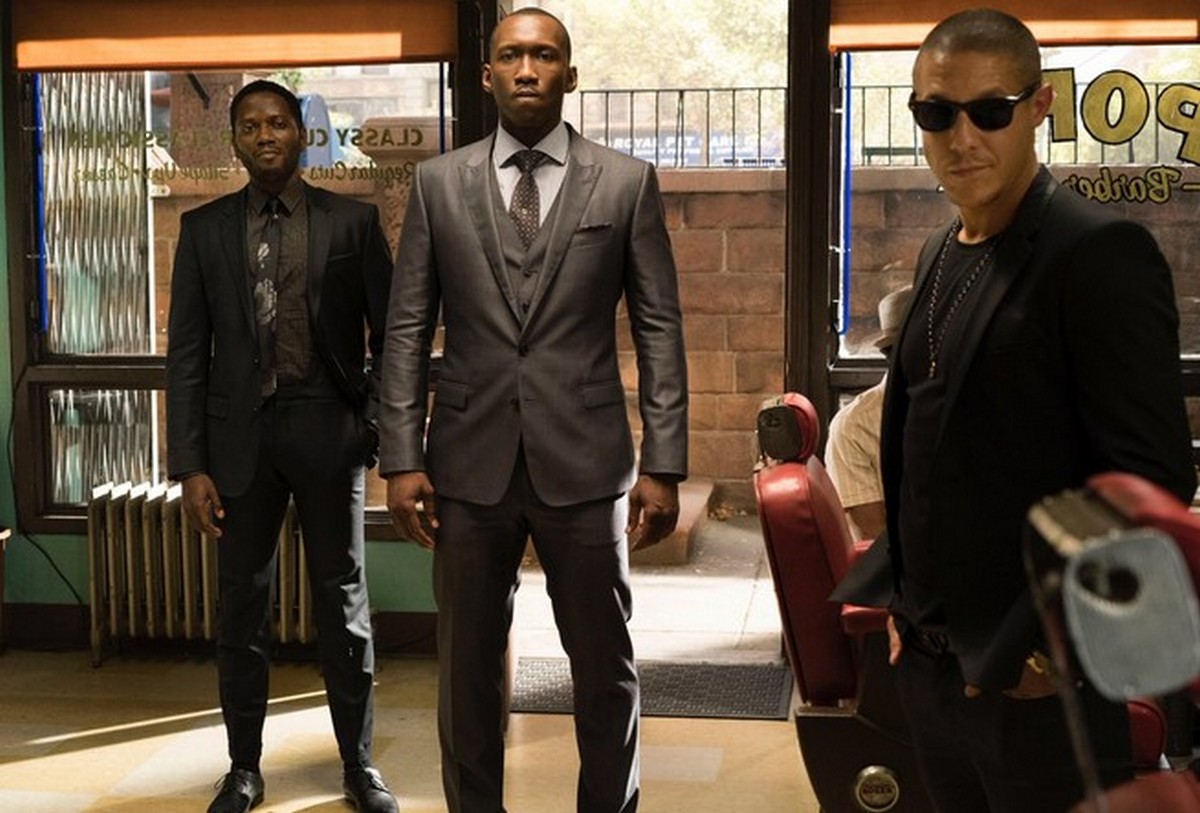
And that pays off best with the sense of Harlem as a real community. Hell’s Kitchen in “Daredevil” and “Jessica Jones” felt like a cityscape left over from a ’90s Steven Seagal movie, but the setting here is as much a main character as Luke, and the show’s very good at establishing the politics of the community, the local hotspots, the friendliness and the danger, and the sense of history.
The cast are pretty good on the whole (we’ll come to the exceptions in a bit), and Coker’s stated fandom of Shonda Rhimes particularly come through with the female characters who are well-drawn, with Simone Missick an instant fan-favorite as tough cop Misty Knight (and playing nicely off Karen Pittman as her boss) and Rosario Dawson getting more to do than in the previous shows.
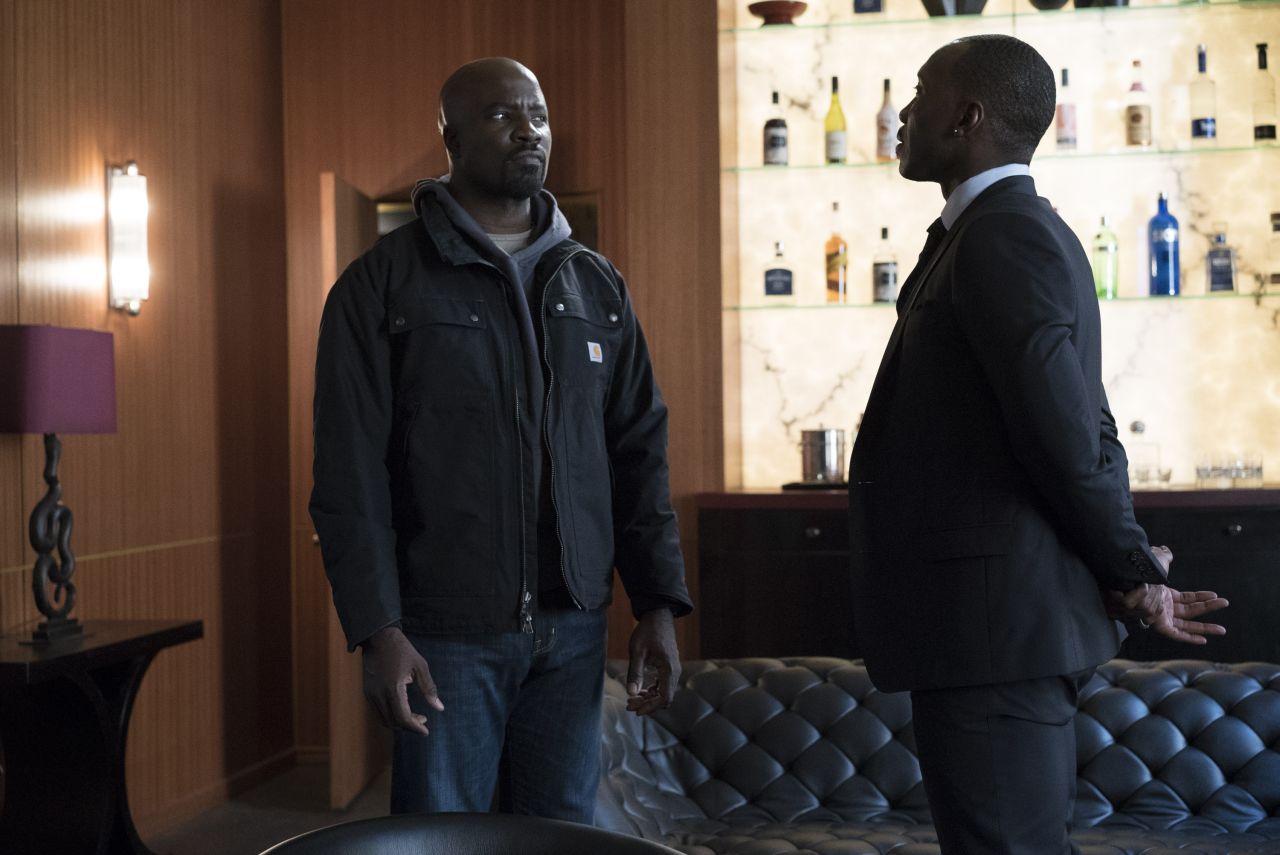
And yet “Luke Cage” shares many of the problems that have wracked these Marvel/Netflix shows from the beginning including: a sluggish pace, inconsistent writing, overstretched plotting, some dull characters. Indeed, in some ways, “Luke Cage” might be hit hardest with some of these. Despite a clear attempt to break the season into two parts, with Cottonmouth the principal villain across the first seven episodes and Diamondback stepping up in his place for the last six (a structure mirrored by “Daredevil” in its second season), there simply isn’t enough story here to last, and the insistence that these first seasons have to serve as extended origin stories, that the characters can’t embrace their superheroics until the very end, leads to what feels like endless wheel-spinning.
Characters act obliquely or against their best interests in order to drag story elements out, and Coker and his writers ensure that there are enough plot holes to do so (as with not one, but three different characters escaping from a building that’s been the subject of a siege and a hostage taking in episode 11). The arc that sees Luke injured by the Judas bullet takes four episodes — virtually a third of the series — to resolve, and then he spends most of the next episode after that hiding in a basement.
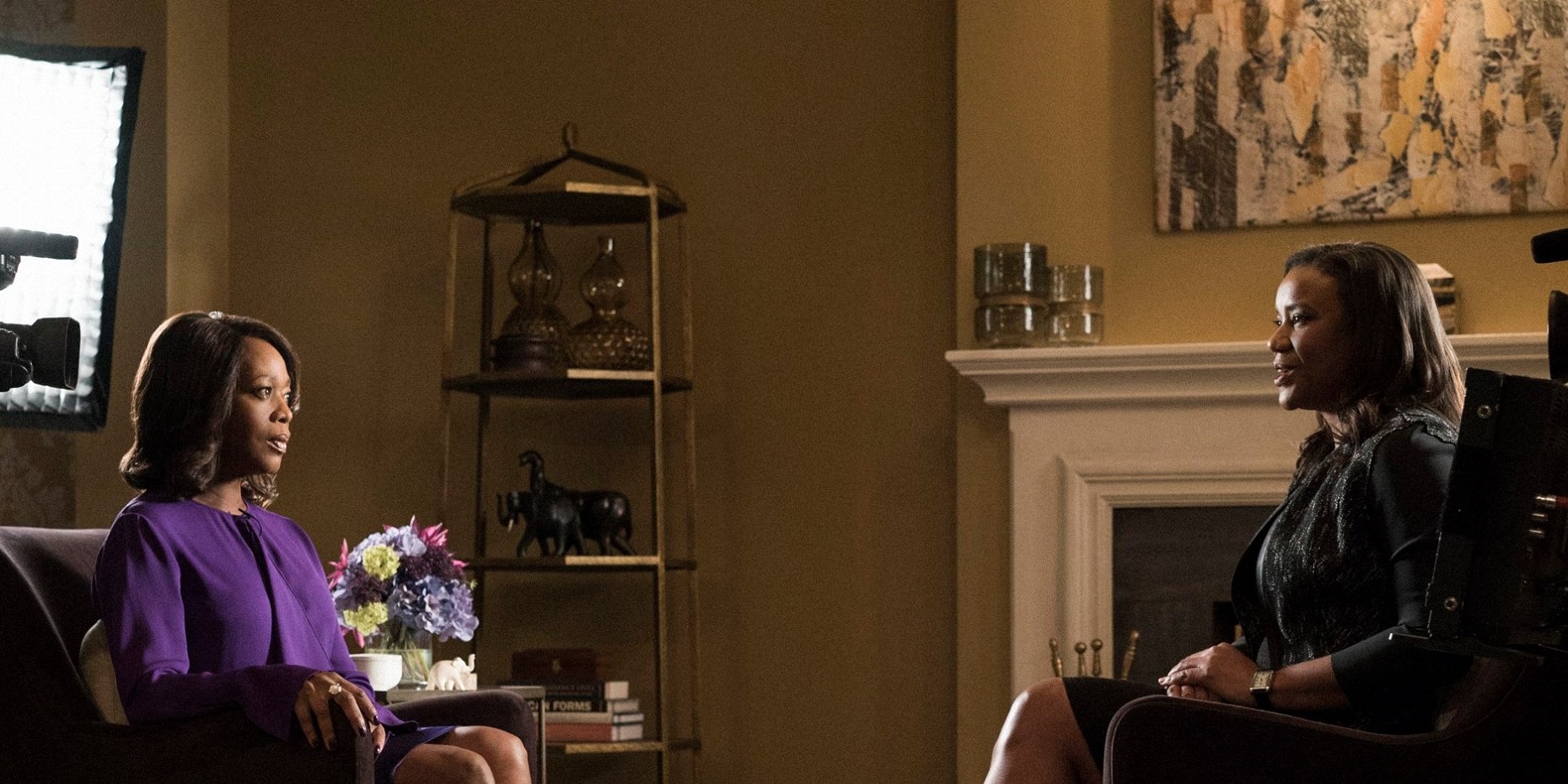 The best elements of the other Marvel Netflix shows have been the villains — Vincent D’Onofrio’s Kingpin, David Tennant’s Kilgrave, and to a lesser extent, Jon Berthal’s Punisher. Perhaps with a slight lack of confidence in Cage’s traditional rogue’s gallery, his show gives him four major villains to battle, but unfortunately, none really make an impression. Mahershala Ali as Cottonmouth is easily the best, thanks largely to the charisma the actor brings, but even that character is mostly underwritten, coming across as a Stringer Bell knock-off for most of his run, only getting more depth in the episode in which he’s killed off (a neat twist, but one that deprives us of the show’s best performance).
The best elements of the other Marvel Netflix shows have been the villains — Vincent D’Onofrio’s Kingpin, David Tennant’s Kilgrave, and to a lesser extent, Jon Berthal’s Punisher. Perhaps with a slight lack of confidence in Cage’s traditional rogue’s gallery, his show gives him four major villains to battle, but unfortunately, none really make an impression. Mahershala Ali as Cottonmouth is easily the best, thanks largely to the charisma the actor brings, but even that character is mostly underwritten, coming across as a Stringer Bell knock-off for most of his run, only getting more depth in the episode in which he’s killed off (a neat twist, but one that deprives us of the show’s best performance).
Alfre Woodard as Mariah is good too, but similarly struggles to ascend the character to real greatness, given that the role is still underwritten, and that she has a very similar arc to Kingpin’s in the first “Daredevil” season. Erik LaRay Harvey is pretty one-note as Diamondback, whose craziness, sibling rivalry and religious imagery just feels cliched, but he’s at least more physically imposing than Theo Rossi as Shades, who mostly comes across as a 12-year-old cosplaying Neo from “The Matrix.” Together, the villain vacuum is one of the reasons that the drama often feels airless — the threat is never particularly threatening.
But then again, Luke isn’t a particularly interesting hero either — he’s kind of a bore. Mike Colter has some charisma, but the character only gets the occasional moments of humor, sexuality or anger, and for the most part is stuck in a kind of stoic groove, passive as a protagonist and overly saintly as a hero. Even the action feels kind of sluggish: given that its hero is virtually invincible, you’d think “Luke Cage” would have more fun in the fight scenes, but instead we just get a million shots of squibs hitting him.

